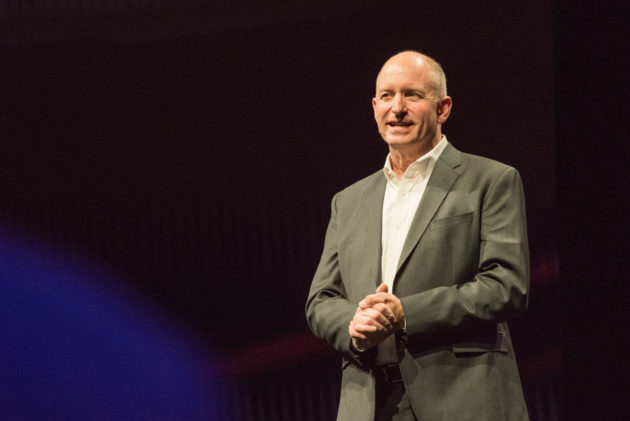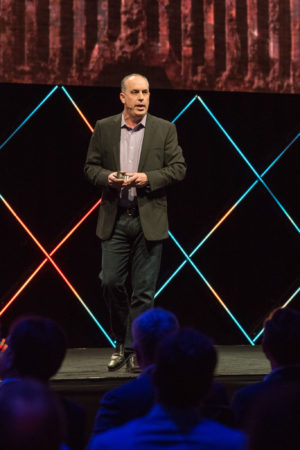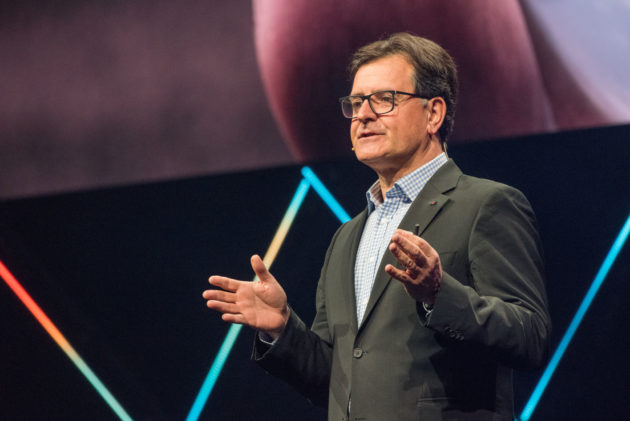Daimler shifts from brands to business segments in new business model
PORTLAND, Ore. – Daimler Trucks North America (DTNA) is recalibrating its business approach away from the Freightliner and Western Star brands, and will instead center its efforts on the vocational and on-highway segments.
The company believes the move will bring greater expertise to each market and help lift its vocational lineup to similar levels of success seen in its on-highway segment.
The announcement also comes with shifting roles for two key executives at DTNA to reflect the company’s new business approach.
Richard Howard, senior vice-president of sales and marketing, will now be responsible for DTNA’s complete portfolio of on-highway trucks under the new title of senior vice-president of on-highway sales and marketing.
David Carson will transition from president of Western Star to senior vice-president of vocational sales and marketing, assuming full responsibility for DTNA’s vocational truck division.
“We are organizing our business to bring equally strong focus to both our on-highway and vocational truck customers,” said Roger Nielsen, president and CEO of DTNA. “Along with that, the best people, products, service, and support have been combined to grow our two strong truck brands across both segments. This new strategy will ensure that we are delivering the best experience for customers, no matter the application or the industry.”

During a conference call with several media outlets, including Today’s Trucking, Nielsen said DTNA is coming off a great decade, and is now dedicated to what the company will do in the next 10 years.
“We think this is a great way to continue on our road to success,” Nielsen said. “We are going to market differently, and we think the way we’re approaching it has been the evolution over the years.”
DTNA is calling the move an evolution in customer focus, as the company aligns with truck market segments with a promise to drive a customer-focused mindset, all while continuing to honor the unique heritage and products of the Freightliner and Western Star brands.
“We know that all of our customers are unique, but that is especially true in the vocational segment,” said Carson. “From municipal customers ordering large quantities of Freightliner M2 equipped with digger derricks, to construction companies that have vast heavy equipment needs for products like the Western Star 4900 configured with heavy-duty cranes or dump truck bodies, it is an incredibly rich and diverse segment that requires a keen understanding of each of our customers’ businesses. Our new structure and focus on our customers’ specialized applications will benefit the vocational segment like no one else can.”
Carson said moving from a brand to a truck segment structure recognizes the differences that exist in the vocational and on-highway applications, and the way DTNA is now shifting its focus will bring both the Freightliner and Western Star brands to both sets of customers.
“This is a very significant transition and strategic change for us,” said Carson.

DTNA believes the new business approach will put its North American dealer network in a better position to provide specific attention to its vocational and on-highway customers.
“Our new structure will allow our business to grow to new heights,” said Howard. “Together with our dealer network, we will continue to prioritize our focus on customer needs including safety, fuel efficiency, and maximum uptime. Alignment around segments will allow us to deliver a world-class customer experience to both our Freightliner and Western Star customers.”
Howard is equally excited about the opportunities this new strategy will bring to DTNA’s on-highway customers.
“On the highway, we will have more dedication to be able to provide even deeper support to our customers than we were able to in the past,” he said.

On the aftermarket side, DTNA says its team, along with its Customer Experience (CX) organization, which launched in 2019 under the concept of the 24-hour maximum turnaround for customers, has “revolutionized the customer experience for the on-highway segment,” and will strive to do the same for vocational customers.
“Our Freightliner and Western Star teams know their customers and will continue to deliver the same exceptional service and support that both brands are known for,” said Stefan Kurschner, senior vice-president of aftermarket for DTNA. “Similarly, we have positioned our business to take that one step further and put the collective resources of DTNA at the disposal of all of our customers. Our target is the 24-hour maximum turnaround and we are working to achieve that, whether our customers are running on-highway or off-pavement and whether they’re operating a Freightliner or a Western Star.”
Nielsen said the company will now be able to put dedicated experts in front of the customer, whether it be vocational or on-highway.
“It allows us to put the right experts in front of the customer to give them the right level of expertise,” said Nielsen.
He added that with what DTNA is seeing as a decline in brand loyalty and an increase in customers’ attention to cost of ownership, the company’s new strategy will help bring greater success moving forward.
“As we progress into this century, the loyalty to a certain design, to a certain logo or brand no longer is the deciding factor,” said Nielsen. “Customers are very much data-driven, they pay close attention to the real cost – what we call total cost of ownership – and they are not so much driven on what is the initial purchase price. They are looking at the full lifecycle of the vehicle. An OEM that can provide the best answers to those equations are the ones that win.
“I think you’ve seen our fleet customers award us with a majority of the on-highways business. Now you see us address that on the vocational side as well, with equal focus and equal support to the vocational business as we gave the highway business.”
Several other DTNA executives will take on new roles as part of the company’s new segment strategy.
Drew Backeberg will enter a newly-created role as vice-president of on-highway sales, while Brian Cota will lead the national accounts team with a focus on strategies to build DTNA’s on-highway fleet business.
On the vocational side, Peter Arrigoni steps up to the new position of vice-president of vocational sales. The vocational national accounts team will be led by Richard Saward, zeroing in on growing the company’s vocational fleet business.
With Kary Schaefer now leading the marketing and product strategy teams for both on-highway and vocational segments, Samantha Parlier will report to Schaefer as vice-president of vocational market development and Kelly Gedert as vice-president of on-highway market development.
Schaefer’s role includes responsibility for Freightliner, Western Star, and Detroit products.
Have your say
This is a moderated forum. Comments will no longer be published unless they are accompanied by a first and last name and a verifiable email address. (Today's Trucking will not publish or share the email address.) Profane language and content deemed to be libelous, racist, or threatening in nature will not be published under any circumstances.